SCUBA News ~~~~~~~~~~~~~~~~~~~~~~~~~~~~
SCUBA News (ISSN 1476-8011)
Issue 217 - June 2018
https://www.scubatravel.co.uk
~~~~~~~~~~~~~~~~~~~~~~~~~~~~~ | Welcome to SCUBA News. I hope you find it useful. Any questions or comments email news@scubatravel.co.uk. You can download a pdf version of SCUBA News here.
What's New at SCUBA Travel?
Liveaboard Deals Save $1100 on Galapagos Liveaboard 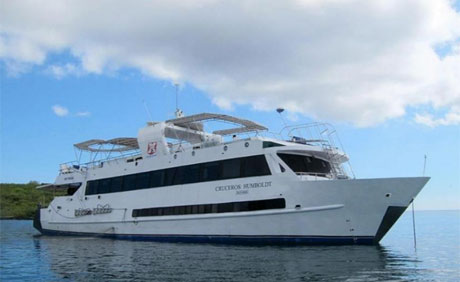
With features specially for photographers, save on liveaboard
visiting Galapagos Central Archipelago, Darwin And Wolf Islands. Learn More…
Divers' help needed mapping seagrass with app New research shows that a fifth of the world's biggest fisheries depend upon healthy seagrass meadows. The meadows are also extremely important for small-scale fisheries. Seagrasses are marine flowering plants that form extensive meadows in shallow seas on all continents except Antarctica. A new study, by scientists at Cardiff and Stockholm Universities, concludes that seagrasses should be recognised and managed to maintain and maximise their role in global fisheries production. In the Mediterranean, for example, seagrass covers less than 2% of the sea floor, but seagrass-associated fish and invertebrate species comprise 30%-40% of the total value of commercial fisheries landings. One of the author's of the study, Dr Leanne Cullen-Unsworth, says: "Seagrass meadows support global fisheries productivity by providing nursery habitat for commercial fish stocks such as tiger prawns, conch, Atlantic cod and white spotted spinefoot". 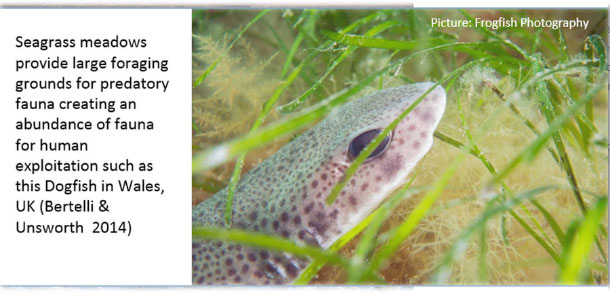
Seagrass meadows are currently experiencing rapid decline with loss estimated at around 7% of their global distribution annually How you can help There is now an app for mapping Seagrass. You can become a citizen scientist and contribute to marine conservation with just a few taps of your phone. Get along to Seagrass Spotter and make your contribution. Further Reading Posidonia in Peril: Save the Seagrass Meadows, Gaye Rosier, SCUBA News. Seagrass meadows support global fisheries production, Richard K.F. Unsworth Lina Mtwana Nordlund Leanne C. Cullen-Unsworth. Conservation Letters, 21 May 2018 Photos CC BY 4.0
Diving News From Around the World Our round up of the best underwater news stories of the past month. For breaking news see our Twitter page or RSS feed 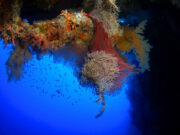 | Red Sea Coral can Survive Climate Change, but not Sewage and Excess Nutrients
Coral reefs in the north Red Sea are resilient to climate change and acidification, but excess nutrients from sewage, fish farms and flash floods can finish them off. | |  | Transparent Eel-like Robot Swims Silently Underwater
The bot is an important step toward a future when soft robots can swim in the ocean alongside fish and invertebrates without disturbing or harming them. | | 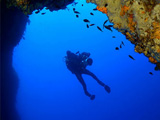 | Oldest diver in the world is 94!
Navy veteran Ray Woolley has been awarded the record of the world's oldest diver. Last year, at the age of 93, Ray did 51 dives. To mark his 94th birthday he made a 38-metre dive to a sunken ferry. | | 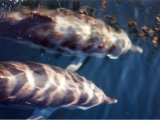 | Shark fisheries hunting dolphins and other marine mammals as bait
Global shark fisheries have for decades engaged in the deliberate catch of dolphins, seals and other marine mammals to use as bait for sharks, a new study has found. | | 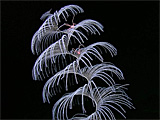 | Deep-Sea Corals Win Protection in Gulf of Mexico
Gulf of Mexico deep-sea corals have won protections today in a first-of-its-kind plan to safeguard some of the region's coral hot spots and restrict damaging fishing gear in most of those areas. | 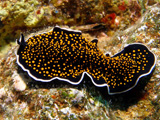 | Third of Arabian Gulf's marine life could be extinct by 2090
Rising water temperature, changing salinity and oxygen levels, and human activity, are all adding to the strain on sea life, with the report claiming that 35 per cent of the fauna found in the Arabian Gulf in 2010 will become extinct over the next 62 years. | | 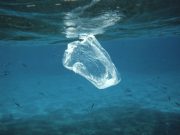 | How ocean pollution affects marine wildlife
Around 1.4 billion pounds of garbage is dumped into the ocean every year, which along with other sources of pollution, including sewage, industrial waste, and oil spills, kills over a million seabirds and 100,000 sea mammals every year. | | |
SCUBA News is licensed under a Creative Commons Attribution 4.0 Unported License. This means we are happy for you to reuse our material for both commercial and non-commercial use as long as you: credit the name of the author, link back to the SCUBA Travel website and say if you have made any changes. Some of the photos though, might be copyright the photographer. If in doubt please get in touch. Photo credits: Tab Hauser, Jill Studholme, Tim Nicholson Previous editions of SCUBA News are archived at http://www.scubatravel.co.uk/news.html SUBSCRIBING AND UNSUBSCRIBING
Visit Unsubscribe and add or remove your e-mail address. To change whether your receive the newsletter in text or HTML (with pictures) format visit this link ADVERTISING
Should you wish to advertise in SCUBA News, please see the special offers at
http://www.scubatravel.co.uk/newsad.html
Other advertising opportunities are at
http://www.scubatravel.co.uk/advertising.html CONTACTING THE EDITOR
Please send your letters or press releases to:
Jill Studholme
SCUBA News
The Cliff
Upper Mayfield
DE6 2HR
UK
news@scubatravel.co.uk PUBLISHER
SCUBA Travel Ltd, 5 Loxford Court, Hulme, Manchester, M15 6AF, UK |
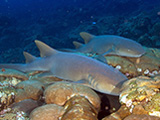

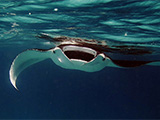










No comments:
Post a Comment